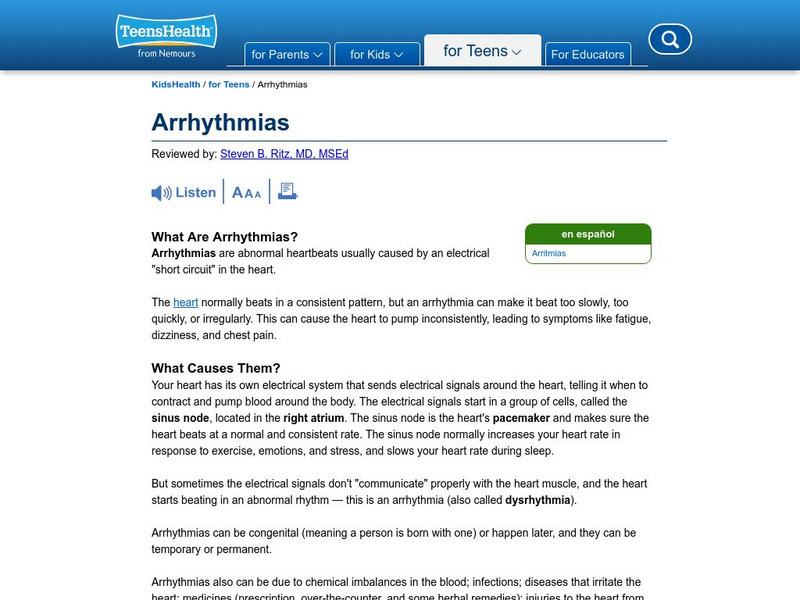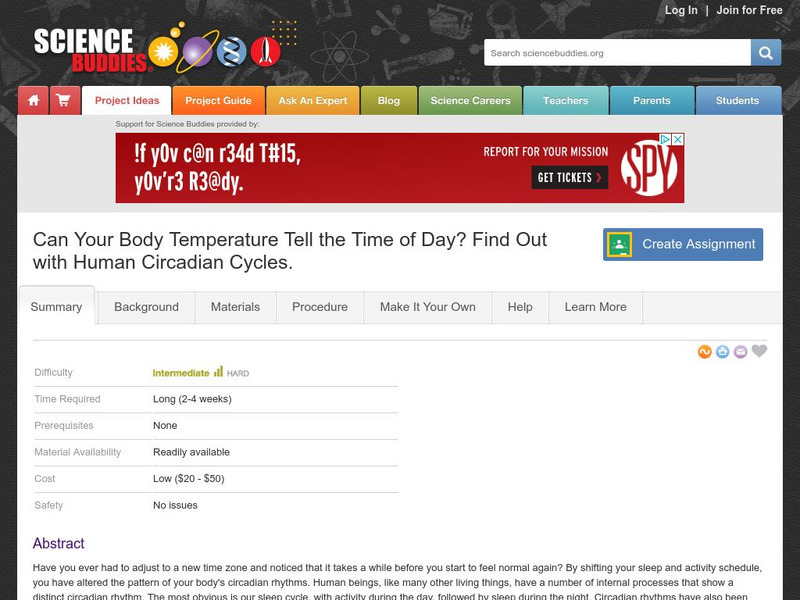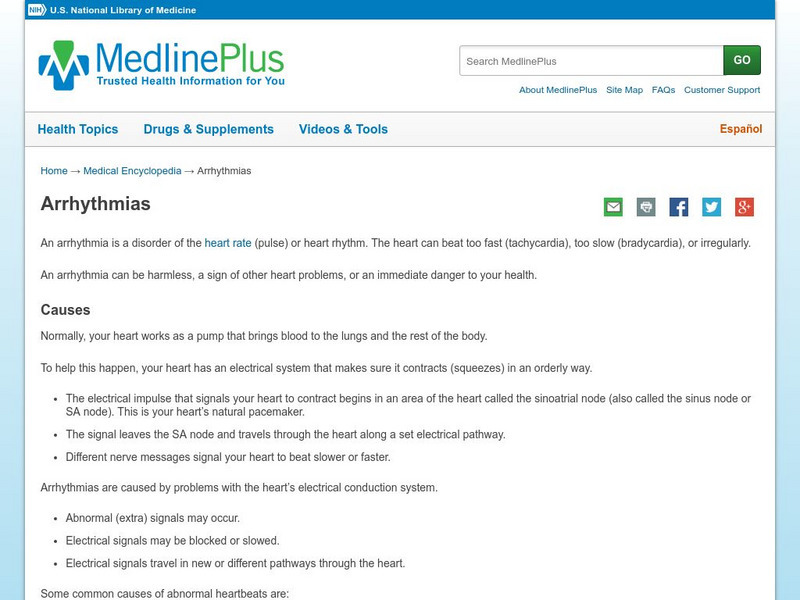Mayo Clinic
Mayo Clinic:target Heart Rate Calculator
Check your target heart rate for safe and effective exercise according to your age and health status in this interactive heart rate calculator
Science Buddies
Science Buddies: A Day in the Life of Your Heart
Heart rates can be determined by the amount of physical activity your body is engaging in. The more physically active you are, the faster your heart beats. You can measure the rate your heart is beating by taking your pulse. This science...
Science Buddies
Science Buddies: Heart Health: How Does Heart Rate Change With Exercise?
Your heart starts beating before you are born and keeps right on going through your whole life. Over an average lifetime, the human heart beats more than 2.5 billion times. Keeping your heart healthy means eating right, not smoking, and...
Texas Heart Institute
Texas Heart Institute: Anatomy of the Human Heart
Take an interactive tour of the human heart. Click on each part of the illustration to read more information about each structure.
American Heart Association
American Heart Association: Conditions: Arrhythmia
A detailed guide about heart arrhythmia and its eight specific types. Content includes information about the symptoms of the condition, a discussion of when treatment might be necessary, and descriptions of treatments.
Curated OER
Kids Health: Arrhythmias
A wealth of information on arrhythmias. Find out about the kinds of arrhythmias, causes, and treatments.
Science Museum of Minnesota
Lesson Plan Site: Sounds of the Heart
For this site, students investigate the sounds of the heart, construct a stethoscope, and investigate the workings of valves.
National Institutes of Health
National Library of Medicine: Your Beating Heart
In this lesson plan site, the students will learn about the circulatory system and perform an experiment where they take their pulse after various activities.
Science Museum of Minnesota
Lesson Plan: Pulse of Life
Students measure their pulse rate and explore how heart rate is affected by various activities.
Curated OER
Kids Health: Old Wives' Tales
Will wearing shoes help a baby walk sooner? Does caffeine stunt a child's growth? Does chocolate cause acne? Find old wives' tales about pregnancy, infants, food, coffee, and illness, and answers to the above questions.
Other
Med Help: The World's Largest Health Community
Med Help is designed to help "patients find the highest quality medical information in the world today." It includes an eNewsletter, news from The Cleveland Clinic Heart Center and ABC TV, and a list of articles which can be searched by...
Science Buddies
Science Buddies: Can Your Body Temperature Tell the Time of Day?
If you have ever had to adjust to a new time zone, you have noticed that it takes a while before you start to feel normal again. By shifting your sleep and activity schedule, you have altered the pattern of your body's circadian rhythms....
Curated OER
Kids Health: What's the Big Sweat About Dehydration?
Find out why it is so very important to drink water in order to prevent dehydration. This article also tells you what to do if you do become dehydrated.
Science Museum of Minnesota
Lesson Plan: Keeps on Pumpin'
In this interactive site, students will measure and calculate heart rates and determine the amount of blood pumped by their heart.
Texas Heart Institute
Texas Heart Institute: Heart Information Center: Arrhythmia
One-page article provides useful information on arrhythmia, including categories, symptoms, diagnosis, and treatment.
University of Utah
University of Utah: Cardiovascular Pathology Index
This site features a detailed index of photographs for cardiovascular pathology. You can see what a normal human heart looks like and what a sick one looks like too. Come and check it out.
BBC
Bbc Schools: Ks2 Bitesize: Science: Living Things: Circulation
Check Steve's cardiovascular health before he starts filming his dangerous wildlife special. Following the activity, read more about the heart, and then take a quick quiz to check for understanding.
US National Library of Medicine
Medline Plus: Arrhythmias
A fact sheet on arrhythmias tell what they are, what causes them, different types of arrhythmias, risk factors, symptoms, treatment, and prognosis after diagnosis. Numerous diagrams of the heart accompany the article.
ClassFlow
Class Flow: Keeping Healthy
[Free Registration/Login Required] This unit helps children to learn that there are many aspects to keeping healthy. Children learn about the heart and how heartbeat is affected by exercise. It gives opportunities to explore issues about...











